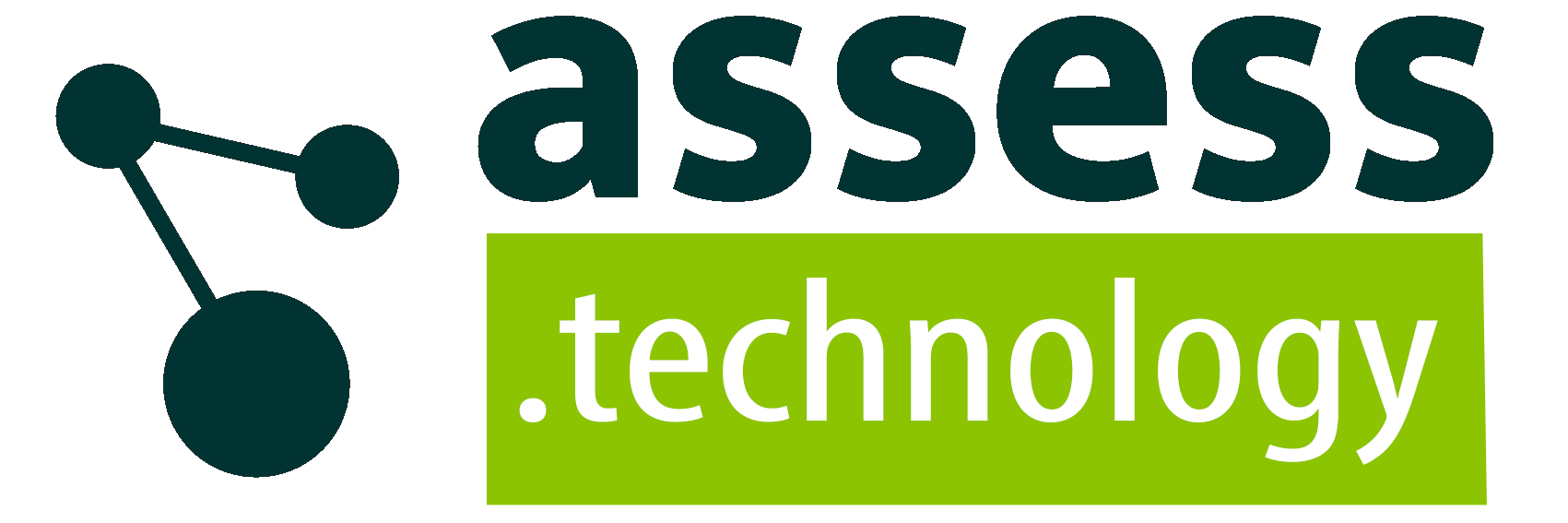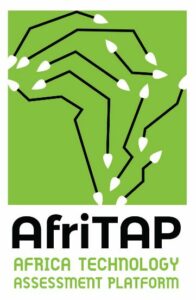An AfriTAP newsletter, June 2022
AfriTAP presents our second newsletter! This newsletter highlights developments in new technologies in Africa, focusing on climate and geoengineering, agriculture and food, genetic technologies and digital technologies. It also contains some illustrations from Freehand Studios in Nairobi. We hope you find this useful. Do share this newsletter and encourage others to sign up!
What is AfriTAP? AfriTAP is the short name for the African Technology Assessment Platform, (in French PEMTAfrique, Platforme d’Evaluation Multidimensionelle des Technologies en Afrique). This is a new initiative of African and International civil society groups working together to track, understand and respond to new technologies that are reshaping our lives and environment. AfriTAP is a collaborative project of HOMEF (Nigeria), IRPAD (Mali), Terre a Vie (Burkina Faso), CESAO (West Africa) and the ETC Group (international) and hopes to grow into a continent-wide network. Our aim is to remain vigilant with respect to which new technologies are being introduced to the continent and to ensure that civil society organizations have relevant information to be able to evaluate, strategize and organize.
This edition’s contents:
Food and Agricultural Technologies
- Kenya criminalizes indigenous seed sharing
- African civil society groups and farmers demand a ban of BT cowpea in Nigeria and West Africa
- IPES-Food report challenges the idea that we need alternative protein
- Food and Agriculture Organization (FAO) publishes a report on the Status of digital agriculture in 47 sub-Saharan African countries and civil society groups responds to FAO’s High Level Panel of experts paper on data
Climate and Geoengineering Technologies
- Geoengineering research taking place in Ivory Coast, Benin, Kenya and South Africa
Genetic Technologies
- African countries insist on compensation for discoveries using digital forms of their biodiversity at UN meeting
- Malaria is being financialized as a vehicle for rogue capital, according to a report by the African Centre for Biodiversity
- The Uganda Virus Research Institute (UVRI), Target Malaria’s institution in Uganda, plans to release genetically modified mosquitoes for experimental purposes
- Target Malaria imports more genetically modified mosquito eggs to Burkina Faso in the next phase of its project
Digital Technologies
- Google and Meta invest in subsea cables, giving them unprecedented control in Africa
International Negotiations
- Convention on Biological Diversity (CBD) June 2022: African push for technology assessment
- Commission on Science and Technology for Development (CSTD): CSTD moves ahead with tech assessment on energy and agriculture in Africa
Food and Agricultural Technologies
Kenya criminalizes indigenous seed sharing
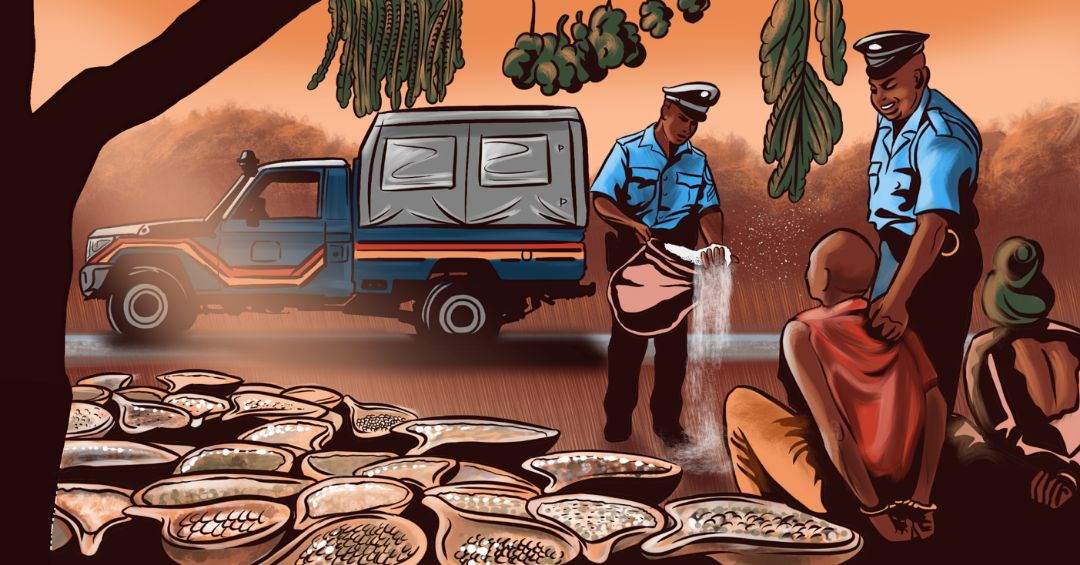
At the end of 2021, Kenya enacted a revised form of the Seeds and Plant Varieties Act of 2012, Part 2(8) under which farmers who sell or share indigenous seeds can face a jail term of six months or a fine of 20 000 Kenya shillings (US$180). A number of Kenyans reacted to the news claiming that the new law was a way to weaponize food insecurity, to prevent poor Kenyans from accessing food and to create a market for commercial seed companies. Such a law is not in place in neighboring countries Tanzania and Uganda where farmers can sell and share seeds freely. This new act is based on the provisions of the Union for the Protection of New Plant Varieties of 1991 (UPOV) to which Kenya is a signatory, and which imposes intellectual property rights on plant varieties and obliges member states to adopt laws and regulations which privatize seeds with farmers paying royalties to multinational seed companies. According to GRAIN, UPOV allows for indigenous seeds to be “discovered,” appropriated by corporations who then prevent farmers from using and exchanging seeds. A coalition of civil society organizations are mobilizing globally against UPOV while in Kenya, Maasai and Kalenjin communities are mobilizing against an individual who is using the Seeds and Plant Varieties Act of 2012 to establish a monopoly rights over a variety of buffel grass.
African civil society groups and farmers demand a ban of BT cowpea in Nigeria and West Africa
A coalition of organizations, farmers groups and researchers from a number of African countries are calling for a ban on the distribution of BT cowpea in Nigeria and other West African countries. Cowpea is an indigenous African crop, also known as the black eyed pea, which is important in food production and to the incomes of people in West Africa. Although Nigeria is a principal producer of the crop, the country must import a large amount to meet demand. In 2019, Nigeria commercially released a genetically modified version of cowpea which carries a microbial insecticidal gene provided by the agribusiness multinational, Bayer, to make it resistant to a major pest. It is expected that Ghana, Burkina Faso and Niger will be next to release the BT cowpea.
African civil society groups noted that the use of the transgene was banned in South Africa, and was shown by scientists to be toxic to human and animal liver cells, as well as capable of altering the immune system. Groups including the Nigeria-based Health of Mother Earth Foundation (HOMEF) as well as other groups have demanded that the distribution of BT cowpea to farmers be stopped immediately as it could have serious consequences on the environment, farmers’ seeds, populations, and production practices, and could trap farmers in unsustainable farming practices, deepening the threat to food security and farmers’ rights. “Towing the GMO route is a false and unsustainable solution to the challenges facing smallholder farmers and will eventually leave them more destitute, as evident in the failure in other countries,” said Nnimmo Bassey, Director of HOMEF. Other groups have also called on African governments to strengthen their countries’ biosafety legislation in line with the precautionary principle, which advocates for caution when there is no certainty of environmental and health safety, and to give adequate support for smallholder farmers, who have resisted pest and disease invasions for many years using indigenous knowledge and innovation.

IPES-Food report challenges the idea that we need alternative protein
IPES-Food, the International Panel of Experts on Sustainable Food Systems, released a report on the politics of protein which warns of the risks of over-emphasizing plant-based meat alternatives such as lab-grown meat, and precision livestock and fish-farming. The expanding market for technologically engineered alternative proteins is sometimes justified as a response to the climate crisis and threats to food insecurity, with a number of governments developing ‘protein’ strategies and channeling funds into lab-grown meat and plant-based substitutes. As well, industrial meat and dairy companies are expanding into this sector because it offers them major economic growth opportunities.
IPES-Food reveals that this ‘protein convergence’ involves the majority of dominant meat processors in the world – including JBS, Tyson, WH Group, and Cargill. The report claims that fake meat is a false “silver bullet technology.” It argues that it is misleading to point to a “protein gap” to be technologically addressed in the diets of those suffering from malnutrition and hunger, but rather that an insufficient diet has to do with poverty and access to food. The debate on alternative proteins, the report argues, has an excessive focus on protein rather than on food systems more generally, and overlooks the importance of meat in pastoralist systems and small-scale artisanal fisheries. “Alternative proteins” could also develop a new phase of food system industrialization, undermining the livelihoods of millions of food producers, rather than supporting transformational changes in the current food system. IPES-Food recommends a number of alternatives to alternative protein including focusing on a transformation toward sustainable food systems.
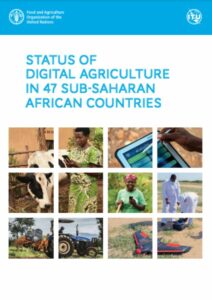
Food and Agriculture Organization (FAO) publishes a report on the Status of digital agriculture in 47 sub-Saharan African countries: civil society groups responds to FAO’s High Level Panel of Experts paper on data
In March 2022, the Food and Agriculture Organization of the UN (FAO) and the International Telecommunication Union (ITU) published a report on the status of digital agriculture in 47 sub-Saharan African countries. In it, the FAO and ITU advocate for a digital transformation of the agricultural sector through improved infrastructure and increased access to digital technologies. They claim that with this transformation, Sub-Saharan African could double or triple its agricultural productivity, and this in turn “would help lift more than 400 million people in sub-Saharan Africa” out of “extreme poverty.” For this transformation to take place, the report claims that what is needed, among other things, is an “enabling business environment.” The FAO and ITC point out that the African Union is also prioritizing the need for digitalization in Africa through the creation of the Digital Transformation Strategy for Africa, which aims at building a digital single market by 2030, and that the establishment of the African Continental Free Trade Area (AfCFTA) and Public-Partnerships (PPPs) will create opportunities for digital agricultural entrepreneurs across the region. Groups with the Civil Society and Indigenous People’s Mechanism (CSIPM) of the Committee on Food Security which also includes pastoralists, farmers, food workers, women, youth and landless communities, expressed concern with the FAO’s High Level Panel of Experts and their insistence on promoting the central importance of data in food security and nutrition. The CSIPM draws attention to data as a commodity, its capacity for monopoly power and distortion of governance, and the ways in which the mobilization of data by the private sector led to increasing corporate mergers, financialization of food systems, inequality and asymmetrical control over information, land, trade and production. The ETC Group and GRAIN have been consistently monitoring dangerous trends in the digitalization of agriculture and its implications for food producers, food workers, vendors and consumers.
Climate and Geoengineering Technologies
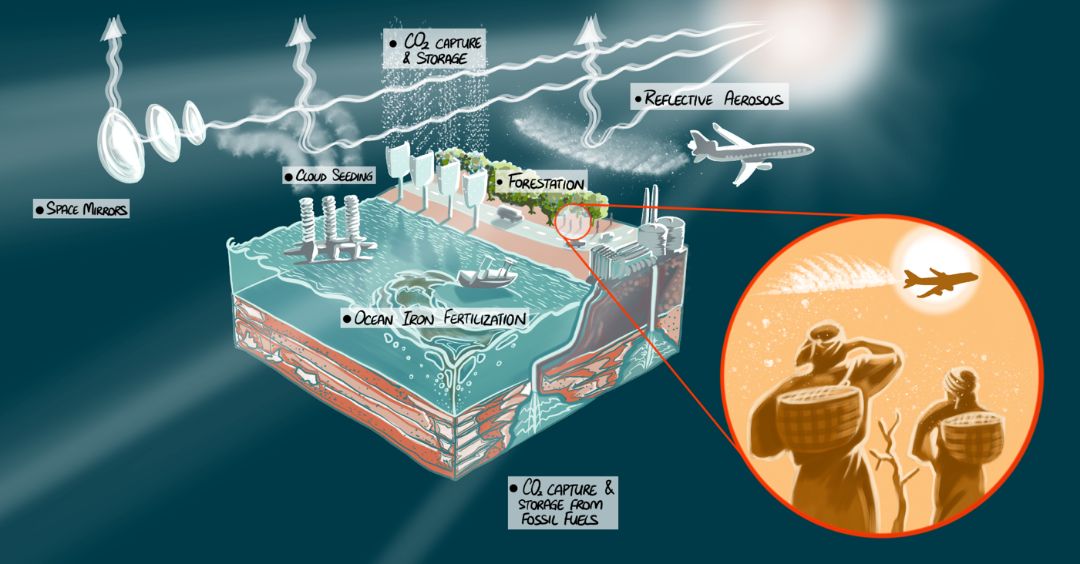
Geoengineering research taking place in Ivory Coast, Benin, Kenya and South Africa
A number of research projects into the possibility of Solar Radiation Management (SRM) are taking place in various African countries. Solar Radiation Management is a geoengineering strategy that attempts to reflect sunlight back into space using techniques such as spraying sulfates into the stratosphere and modifying clouds, plants and ice to make them reflect more sunlight. Geoengineering refers to large-scale technological manipulation of the earth’s systems to attempt to manage some symptoms of climate change, but without addressing its root causes. Funding of research into SRM in Africa is being carried out by a UK organization called the Degrees Initiative which is led by prominent advocates of geoengineering techniques and claims to have taken “the SRM conversation to the global South.” As geoengineering proposals are by and large created by northern countries with high emissions in order to avoid reducing their own emissions, they create “research support” projects involving researchers in Africa in order to push the idea that geoengineering is of interest to the global South.
In 2018, the Degrees Initiative launched the DECIMALS fund to finance researchers in the global South to analyze the impacts of SRM in their regions. According to the organization, DECIMALS is the world’s largest SRM research programme. In 2022, their annual budget was increased to US$1 million and they now have research teams in Ivory Coast, Benin, Kenya and South Africa all of which follow suggestions of the Degrees Initiative. Degrees claims to have a neutral stance on SRM and to be broadening the “global conversation,” but civil society groups monitoring geoengineering technologies are concerned they are clearing the way towards deployment of this technology by starting with research projects. “Many of the DECIMALS researchers continue to state that there are concerning consequences but then advocate for more research, which eventually enforces the need for field testing,” said Serayna Solanki, the coordinator of the Hands off Mother Earth (HOME) campaign. According to a report by the Basel Convention Regional Centre titled, “Study on Geoengineering and African Perspectives,” geoengineering advocates met with African climate negotiators and tried to convince them to initiate tests at the regional level to measure consequences on cycles of droughts in the Sahel. “This is really concerning that global north researchers push playing with the complex climate over Africa – it’s a clear example of how research by DECIMALS can get used by real geoengineering advocates in this way,” said Solanki. Other geoengineering projects and experiments on the continent can be viewed on the geoengineering map.
Genetic Technologies
African countries insist on compensation for discoveries using digital forms of biodiversity
In March 2022 a meeting of the UN Convention on Biological Diversity (CBD) took place in Geneva which aimed to continue negotiations towards a global agreement on biodiversity, the Global Biodiversity Framework. At the meeting, a controversy occurred over Digital Sequence Information (DSI), the term given to genetic data in digital form. At the meeting, developing countries demanded that they be paid for discoveries and products based on their biodiversity, with African countries specifically asking for a financial mechanism to be put in place in order to compensate them for any discoveries that use their biodiversity in digital form. Information from digital sequencing has led to the creation of numerous medicines and products including HIV therapies, COVID vaccines and drink sweeteners. At the meeting, representatives from Africa, Latin America and the Caribbean claimed that DSI was a form of biopiracy which allowed pharmaceutical companies and others to avoid sharing profits from the biodiversity in their countries. African countries proposed a biodiversity levy of 1% on the retail price of all products that are created from genetic resources and DSI, which would go towards biodiversity conservation. DSI is said to be a “gray area” because not all countries have ratified the Nagoya Protocol on Access and Benefit Sharing which is ostensibly designed to safeguard the traditional knowledge of indigenous people by demanding that traditional knowledge and associated genetic resources can only be accessed with the prior informed consent (PIC) of Indigenous Peoples, and if access is authorized, the fair and equitable sharing of benefits must be ensured. The negotiations of the March 2022 meeting were not concluded and will continue in June 2022 in Nairobi.
Malaria is being financialized as a vehicle for rogue capital, according to a report by the African Centre for Biodiversity
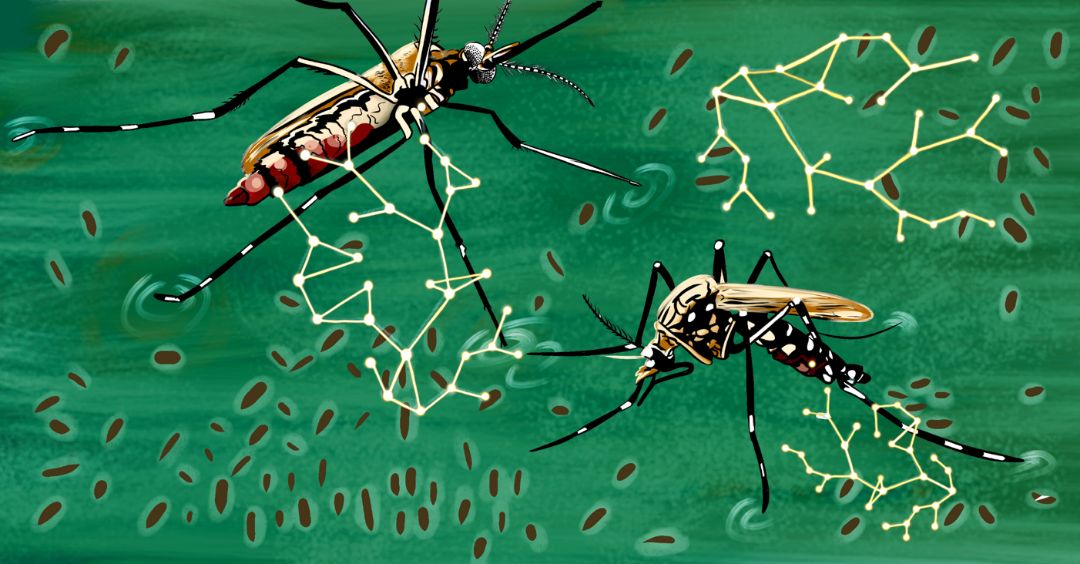
The African Centre for Biodiversity released a report about the financialisation of malaria as a vehicle for rogue capital, with a focus on Burkina Faso. Financialization is defined as the growing role that financial markets, institutions, actors and financial motives play in shaping international and national economies and societies. The report finds that financialization of malaria plays an important role in responses to the disease, with country and donor funds being invested into research while not for profit organizations partner with market actors like pharmaceutical companies) to bring malaria products to market. When these products are sold to county governments, royalties and patents are accumulated by the research and development companies. Only 1% of malaria funding ends up in local research institutions in affected countries.
According to the report, weak and corrupt governments are especially vulnerable to financialisation and in Africa, malaria is being increasingly treated through “chemical, drug-based, high-tech, risky and untested solutions,” while communities are made recipients of technologies imported from the West such as genetically modified and gene drive mosquitoes. In the case of Burkina Faso, financialization in malaria is occurring through philanthrocapitalism and specifically through the work of the Bill and Melinda Gates Foundation and the companies they fund. To combat this trend, AcBio and its partners are calling on African citizens to demand the decolonisation of public health and to fight against the privatization of the health sector. They are also calling on governments to direct funding toward strengthening the public healthcare system, sanitation, access to clean water and improved housing. We must vehemently contest and ward off increased privatization of the health sector.
The Uganda Virus Research Institute (UVRI), Target Malaria’s institution in Uganda, plans to release genetically modified mosquitoes for experimental purposes
The Uganda Virus Research Institute (UVRI) in Entebbe, through which Target Malaria is pushing forward its project to release gene drive mosquitoes for malaria eradication, approached the municipal government with plans to release genetically modified mosquitoes for experimental purposes and received approval from the mayor of Entebbe. The release of genetically modified male mosquitoes is part of the experimental process toward eventually releasing gene drive mosquitoes. Gene drive organisms are created by genetically engineering a living organism with a particular trait, and then modifying the organism’s reproductive system to force the modified gene onto future generations, spreading the trait throughout the entire population. In the case of the malaria-carrying mosquito, the Anopheles gambiae, the gene drive would prevent the mosquitoes from having female offspring or from having offspring altogether. These modified mosquitoes would then pass on their genes to a high percentage of their offspring. In time, the entire species would in effect be completely eliminated.
Target Malaria imports more genetically modified mosquito eggs to Burkina Faso in the next phase of its project
In March 2022, the IRSSS (Institut de Recherche en Sciences de la Santé), Target Malaria’s partner institution in Burkina Faso, imported genetically modified mosquito eggs from Italy. These eggs are another strain of genetically modified, non-gene drive mosquitoes which have been modified to produce mainly male offspring. Target Malaria claims that this new phase of their experiment in Burkina Faso aims at understanding this “new fertile strain, develop capacity, train Target Malaria teams and engage with regulatory authorities and stakeholders.” These experiments are part of a longer process which aims at releasing gene drive mosquitoes, ostensibly for malaria eradication. Over 170 civil society groups, farmers and activists in Burkina Faso and across the world have opposed Target Malaria’s gene drive project for many years. They are concerned with the lack of transparency, lack of public awareness, and potential risks to local communities and have called for the experimental release of genetically modified mosquitoes to be halted.
Digital Technologies
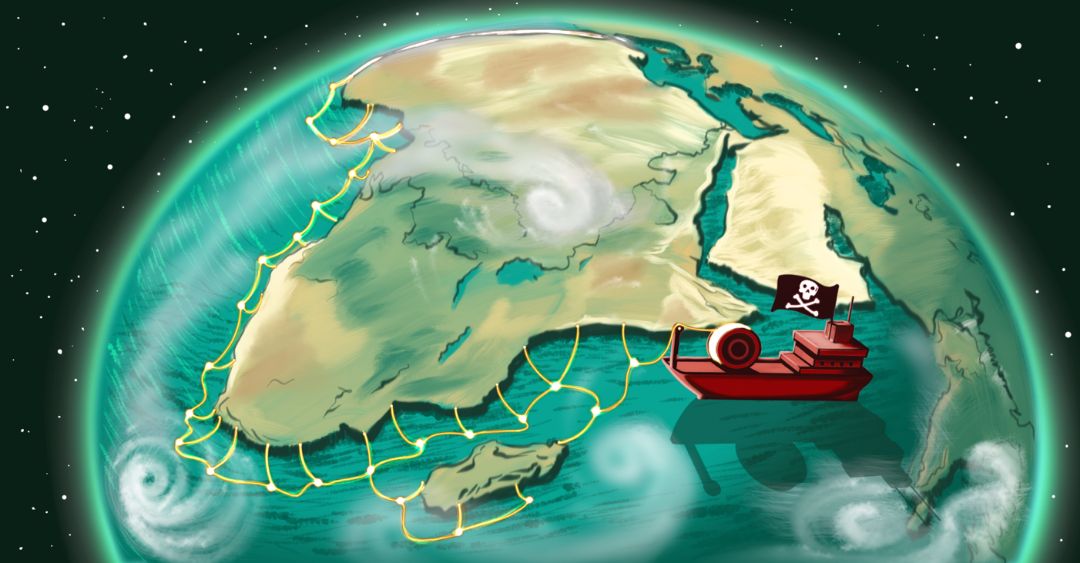
Google and Meta invest in subsea cables, giving them unprecedented control in Africa
Alphabet (Google) has begun laying down a subsea cable which it calls Equiano. The cable will run from South Africa, up the West Coast, to Portugal, connecting Africa with Europe. Google claims that the cable will add $10 billion to Nigeria’s GDP and 1.6 million new jobs to the country but such pipelines are also about extracting valuable data away from the continent. Meta (formerly Facebook) is also laying down a 45,000 km cable called 2Africa which will connect Portugal then move south off Africa’s Atlantic coast, and continue around the Cape of Good Hope, up the Indian Ocean coast, across Egypt and then to European shores. In September 2021, Meta then announced a further expansion of the 2Africa cable into 2Africa Pearls, which will branch off near the Horn of Africa and connect India, Pakistan, and nearly all of the Gulf states. This will constitute the longest undersea data cable in the world. The builders of these data pipelines trumpet how they will bring “seamless international connectivity” to 33 countries home to 3 billion people, or 36% of the world’s total population. However this is not an altruistic move to give every African access to the world wide web. Establishing better data connectivity in Africa is seen as a pre-requisite to unleashing digital business models on the continent – including widespread digital farming, opening the doors to global telehealth, online commerce, financial tech and more to access data, resources and consumers on the African continent. An investigation by Rest of World reveals that these cables will place an “unprecedented level of control” in the hands of these two titan tech companies, rebuilding the internet into a kind of supranet which will be dominated by a small number of mega networks operating using their own physical infrastructure. Critics worry that no public policy exists to curb the power of these companies, particularly if they control the infrastructure.
International Negotiations
Convention on Biological Diversity (CBD) June 2022: African push for technology assessment
The fourth meeting of the open-ended working group on the post-2020 Global Biodiversity Framework (GBF) is taking place in Nairobi from June 21 to 26, 2022, in preparation for COP15 which is scheduled to take place in Montreal from December 5 to 17 2022. This current meeting follows from the March 2022 meetings of the Convention on Biological Diversity in Geneva during which African countries pushed for technology assessment, but the negotiations remained incomplete. With those acting for the Gates Foundation actively promoting various forms of synthetic biology in Geneva, including gene drives, GM viruses and self-spreading animal vaccines, it is expected that those they fund in Africa will push for these technologies to be permitted under the GBF.
Commission on Science and Technology for Development (CSTD): CSTD moves ahead with tech assessment on energy and agriculture in Africa
The Commission on Science and Technology for Development (CSTD) is putting in place a new project on technology assessment in the areas of energy and agriculture targeting three countries in Africa: South Africa, Seychelles, and Zambia. Technology assessment is a process of evaluating new technologies by subjecting them to critical scrutiny. The CSTD defines it as “a problem-oriented process that examines the societal effects when a technology is introduced, extended or modified” and intends to help with assessing both benefits and negative effects of new technologies as well as addressing the lack of capacities in African countries in understanding the socioeconomic and environmental implications of new and emerging technologies. ETC Group has been pushing for technology assessment at the CSTD since 2017 and is concerned that this project does not bring the participation of local people, communities, and civil society to the forefront, which ETC regards as key components of effective technology assessment. Several African countries have expressed that they are not aware of what technology assessment is about and how it is done, and have limited appreciation of community innovations and local knowledge systems in general. ETC Group and AfriTAP will closely monitor the implementation of the CSTD’s Technology Assessment project in Africa.
How to subscribe, join and grow the AfriTAP/PEMTAfrique network
This is the second of our regular quarterly newsletter, sharing critical news and views about new technologies in Africa. If you would like to receive our upcoming newsletters and/or join the AfriTAP network, please write to guy.yameogo2013@gmail.com, mfoniso@homef.org or tom@etcgroup.org. We will be putting together a mailing list for future news and information. If you have feedback or comments to help us improve this newsletter or if your organization would like to become more involved with AfriTAP/PEMTAfrique, please write to us.
